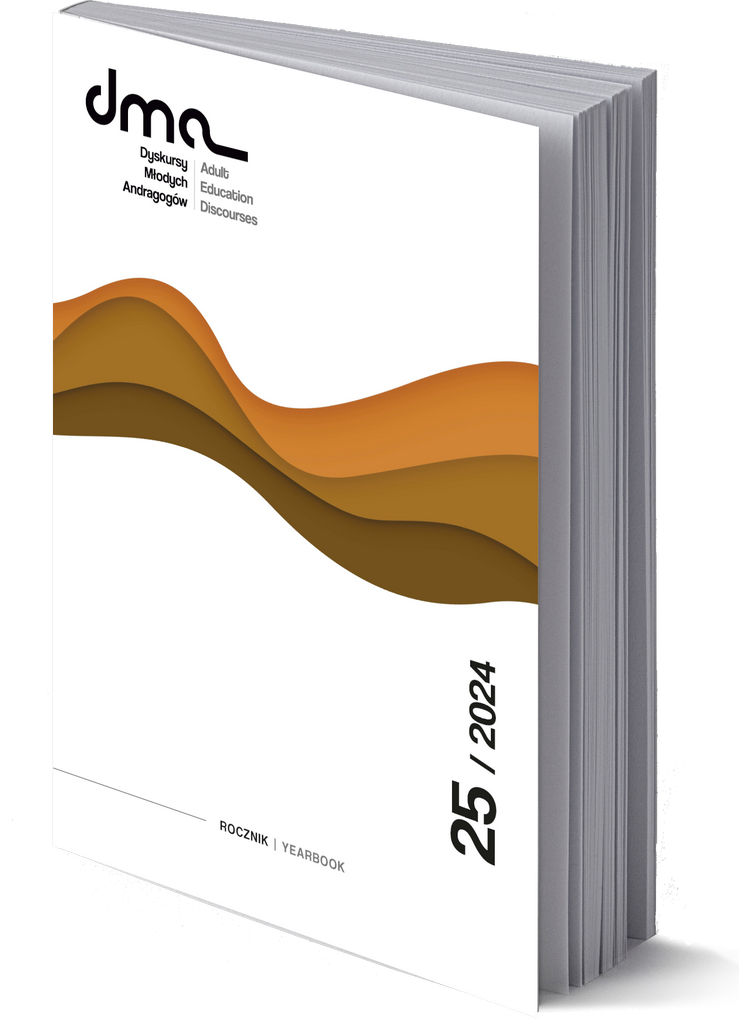Główna treść artykułu
Abstrakt
This article outlines the implementation of the INSPIRE project by the University of West Bohemia in Pilsen, with some activities conducted in Poland. The project leverages Fred Korthagen’s conception of teacher education to introduce innovative higher education methods. It targeted 20 pedagogy students and 6 active teachers from regional partner institutions and was carried out between 1 July 2020 and 31 December 2022 in Czechia and Poland and in three stages. In the first stage, educational needs were examined and the syllabuses of the subjects taught were modified to address the challenges of the contemporary world so that students could acquire relevant new skills. In the second stage, the participants gained international educational experience. In the final stage of the project, the participants evaluated the activities and exchanged their own observations. The participants’ reflections on their experiences from the project activities are presented here as a way of disseminating the new approach to education.
The results of the project are presented qualitatively as the methodological approach followed in the project was that of the action research paradigm. The project contributes a fresh and realistic
perspective to the debate on the contemporary university and on what will help to achieve learning
outcomes in line with the requirements of the Revolution 4.0. It also shows how to introduce the
social competencies required for the education of the future at universities.
Słowa kluczowe
Szczegóły artykułu

Utwór dostępny jest na licencji Creative Commons Uznanie autorstwa 4.0 Międzynarodowe.
Bibliografia
- Chmielecka, E. (2019) Zmiany w rozumieniu jakości kształcenia. In: E. Chmielewska & N. Kwa-śniewska (eds.) Edukacja dla przyszłości – jakość kształcenia. Warszawa: Fundacja Rektorów
- Polskich, 13-20.
- Farnicka, M. (2019) Action Research as an Element of Integrative Research Model in Social Sciences/ Badania w działaniu jako element integracyjnego modelu badań w naukach społecznych, Przegląd Badań Edukacyjnych [online], 1(28), 219-233. Available at: https://doi.org/10.12775/PBE.2019.012.
- Korthagen, F. (2011) Jak spojit praxi s teorií: didaktika realistického vzdělávání učitelů (Trans. Janik, T. & Najvar, P.). Brno: Paido.
- Kosiková, V. (2022) Autodiagnostika učitele, Moodle. Kurz pro učitele. Pilzno: FPE ZČU v Plzni.
- OECD (2017) The Future of Education and Skills, Education 2030 [online]. Available at: https://www.oecd.org/education/2030/E2030%20Position%20Paper%20.pdf [20.07.2022].
- Paprocki, W. (2018) Rola nauczyciela akademickiego w epoce czwartej rewolucji przemysłowej. In: J. Czarzasty, Cz. Kliszko (eds.) Świat (bez) pracy. Od fordyzmu do czwartej rewolucji przemysłowej. Warszawa: Oficyna Wydawnicza SGH, 63-64.
- Projekt INSPIRE (2021) FPE ZČU v PLZNI. CZ.02.3.68/0.0/0.0/19-068/0015764.
- Serrat, O. (2011) Critical Thinking [online]. Available at: https://www.adb.org/sites/default/files/ publication/28108/critical-thinking.pdf [21.05.2023].
- Slavík, J., Hajerová Mullerová, L., Soukupová, P. et al. (2020) Reflexe a hodnocení kvality výuky I, Plzeň: ZČU.
- Slavík, J., Janik, T., Najvar, P. & Pišová, M. (2012) Mezi praxí a teorií v učitelském vzdělávání: na okraj českého překladu knihy.In:]F.A.J. Korthagena et al. Pedagogická orientace [online], 22(3), 367-386. Available at: https://doi.org/10.5817/PedOr2012-3-367.
- Szulczewski, G. (2018) W poszukiwaniu sensu życia w świecie bez pracy. In: J. Czarzasty & C. Kliszko (eds.) Świat (bez) pracy. Od fordyzmu do czwartej rewolucji przemysłowej.Warszawa: Oficyna Wydawnicza SGH, 31-52.
- World Economic Forum (2016) Top 10 Emerging Technologies in 2016 [online]. Genewa. Available at: https://www.weforum.org/agenda/2016/06/top-10-emerging-technologies-2016/ [27.07.2023].

